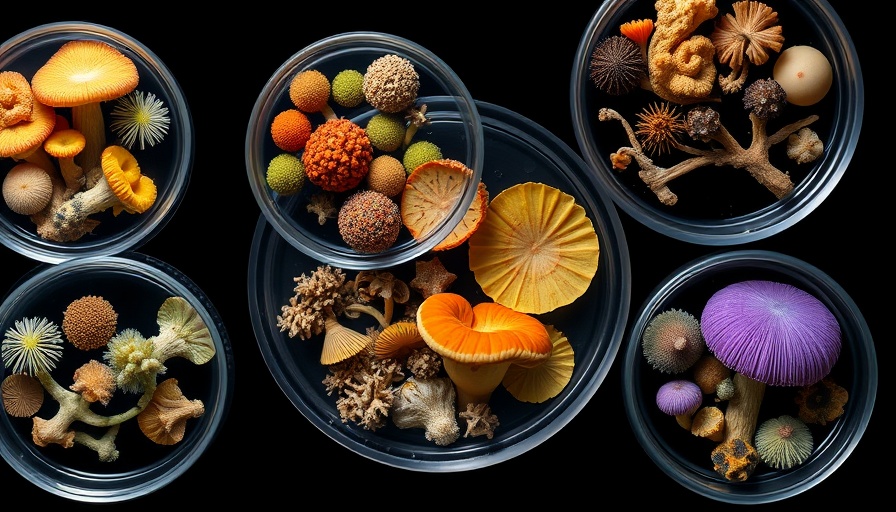
A Breakthrough in Marine Plastic Cleanup
Plastic waste is a severe issue for our oceans, comprising approximately 80 mt of mismanaged plastic that inevitably ends up polluting marine environments. A recent study conducted at the University of Hawaii at Mānoa has unearthed a potential ally in this battle: marine fungi. Researchers have identified various fungi from coral reefs and sponges along the Hawaiian coastline that not only digest plastics but can also be conditioned to do so more efficiently.
How Fungi Are Transforming Plastic Waste
Marine fungi showcase a unique ability to metabolize substances that many organisms struggle to digest. This includes plastic materials such as polyurethane and potentially even tougher compounds like polyethylene and polyethylene terephthalate (PET)—common culprits in ocean pollution. The researchers found that over 60% of the fungi they isolated from the seas possessed some degradation capability and that specific fungi could enhance their plastic-eating abilities significantly in just three months when exposed to these materials.
Recognizing the Plastic Pollution Crisis
Every year, roughly the equivalent of 625,000 garbage trucks worth of plastic accumulates in our oceans. This plastic does not simply decompose; rather, it breaks down into microplastics, which can be consumed by marine life. As plastic persists in our ecosystems, it causes malnutrition and death among countless marine animals. Understanding and utilizing natural processes, such as those provided by fungi, could be key to developing more sustainable waste management and remediation strategies.
Looking to the Future
The future entails ongoing research by the UH Mānoa team to explore how these fungi can adapt to decompose more plastic types and determine the underlying cellular and molecular mechanisms at play. Collaborating with experts in engineering and environmental science could turn this promising discovery into tangible solutions for cleaning our oceans.
Conclusion: An Ally in the Fight Against Marine Plastic
As our understanding of marine fungi deepens, we may unlock new avenues for addressing the daunting crisis of plastic pollution. These microorganisms are a reminder that nature often holds the keys to the solutions we seek, and fostering collaboration across disciplines is essential for a cleaner, healthier ocean.
 Add Row
Add Row  Add
Add 




Write A Comment